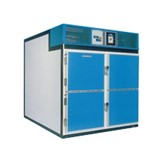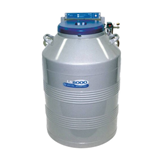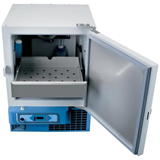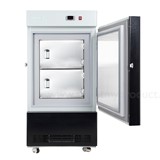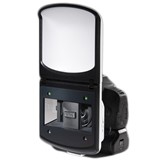Vaccine fridges and freezer equipment in Sydney are essential for the safe and effective storage of vaccines and medications in medical facilities.
However, like any other equipment, vaccine fridge and freezer units require regular maintenance to ensure optimal performance and prevent downtime or equipment failure. In this guide, we will discuss the importance of regular maintenance for vaccine fridge and freezer equipment, common issues and troubleshooting tips, best practices for preventative maintenance, training and certification for maintenance personnel, and the role of technology in maintenance and troubleshooting.
The Importance of Regular Maintenance for Medical Vaccine Fridge & Freezers
Regular maintenance is crucial for the vaccine fridge and freezer equipment to ensure it operates effectively and efficiently. Regular cleaning of the unit's interior, exterior, and condenser coils helps remove any dust, dirt, or debris that can hinder its performance. Additionally, regular maintenance can detect any potential issues before they become significant problems, preventing equipment downtime or failure.
One of the primary reasons for vaccine fridge and freezer equipment maintenance is to ensure that the temperature is consistent and accurate. A slight fluctuation in temperature can impact the potency of vaccines and medications stored in the unit, rendering them ineffective. Regular maintenance ensures that the temperature control system operates correctly and maintains the desired temperature range.
Common Issues and Troubleshooting Tips for Vaccine Fridge & Freezer
Several common issues can affect vaccine fridge and freezer equipment, such as temperature control, leaks, and defrosting problems. Troubleshooting tips include ensuring the unit is plugged in correctly, checking for any blockages or obstructions, and ensuring the thermostat is set to the correct temperature. Additionally, inspecting door gaskets for any cracks or tears can help prevent leaks, and defrosting the unit regularly can prevent ice buildup and subsequent damage.
- Temperature fluctuations: Temperature fluctuations can occur due to a range of factors, including a faulty thermostat, a blocked air vent, or a malfunctioning compressor. Troubleshooting steps include checking the thermostat settings, ensuring adequate air circulation, and inspecting the compressor for signs of damage or wear.
- Leaks: Leaks can occur in various parts of the unit, including the door gaskets and drainage system. Troubleshooting steps include inspecting the door gaskets for any cracks or tears, checking the drainage system for clogs or obstructions, and replacing any damaged parts as necessary.
- Ice buildup: Ice buildup can occur due to a range of factors, including a malfunctioning defrost system, a blocked air vent, or a faulty door gasket. Troubleshooting steps include checking the defrost system for proper function, ensuring adequate air circulation, and inspecting the door gaskets for any damage or wear.
- Electrical issues: Electrical issues can occur due to a range of factors, including faulty wiring, a damaged power cord, or a malfunctioning electrical component. Troubleshooting steps include inspecting the power cord for any damage or wear, checking the wiring for any loose connections, and replacing any damaged electrical components as necessary.
- Compressor issues: Compressor issues can occur due to a range of factors, including a faulty start relay, a clogged condenser coil, or a low refrigerant level. Troubleshooting steps include checking the start relay for proper function, cleaning the condenser coil, and checking the refrigerant level to ensure it's at the correct level.
Best Practices for Preventative Maintenance of Vaccine Fridge & Freezers
Preventative maintenance is essential for vaccine fridges and freezer equipment to prevent downtime or equipment failure. Best practices include regular cleaning, checking the unit's door gaskets, monitoring temperature, and inspecting any electrical components. Additionally, it's crucial to ensure that the unit is installed correctly and located in an appropriate area with adequate ventilation and proper air circulation.
- Read the manual. A lot of these things are self-explanatory, but it's always good to know what you're dealing with if something goes wrong or starts to break down.
- Keep it clean! Cleaning your vaccine fridge and freezer regularly ensures that there are no build-ups of dust, grease or other contaminants that could cause problems later on down the line. You should also check for any cracks or damage on seals; if they start showing signs of wear then they should be replaced immediately because this could lead to increased energy consumption (and wasted money) as well as potential contamination issues within your product storage area which isn't ideal at all!
- Keep the door closed when not in use so temperatures remain constant inside each appliance; otherwise, they may fluctuate wildly depending on how long its been since someone opened them last time around which could have disastrous consequences for both human health due - especially when dealing with vaccines containing live organisms - as well as overall quality control measures put into place by manufacturers who make sure everything runs smoothly before sending items out into marketplaces worldwide.
- Electrical components, including wiring and power cords, can become damaged or wear over time. Regular inspections can detect any potential issues before they become significant problems. It's crucial to ensure that the unit's electrical components are properly installed and that the power cord is not frayed or damaged.
- Adequate ventilation is essential for proper air circulation and preventing overheating. It's essential to ensure that the unit is installed correctly and located in an appropriate area with proper ventilation and air circulation. It's also essential to avoid blocking the air vents and ensure that the unit's condenser coils are free from dust or debris.
- Calibration of temperature control systems helps ensure accurate and consistent temperature control. Regular calibration, including annual calibrations, can prevent temperature fluctuations and ensure optimal performance. It's crucial to follow the manufacturer's recommendations for calibration and use a reliable thermometer to verify the temperature readings.
How to Troubleshoot Common Vaccine Refrigeration Issues
It's crucial to have a clear understanding of how to troubleshoot common vaccine refrigeration issues, such as temperature control or power issues. Understanding the problem's root cause can help determine the appropriate corrective actions. Troubleshooting tips include checking the electrical connections, inspecting the temperature control system, and identifying any blockages or obstructions in the unit.
- Check the temperature in the refrigerator and freezer.
- Check power supply to the refrigerator and freezer.
- Make sure there are no air gaps in your system (this can cause freezing).
- Prevent freezing by keeping an extra layer of insulation between you and your vaccine storage unit. You can also use fans to circulate air around them as well!
- Prevent condensation by ensuring your vaccine storage unit has enough ventilation space around it so that warm air doesn't build up near its surface area - this can cause moisture buildup which leads directly into mold growth within days since molds love humidity levels above 70% RH levels; so make sure there aren't any blocked areas around these products before using them again!
- You can also purchase a humidifier to help keep the air around your vaccine storage unit moist, which will help prevent moisture buildup. You can also use fans to circulate air around them as well!
Training and Certification for Vaccine Fridge & Freezer Maintenance Personnel
Maintenance personnel should undergo training and certification to ensure they have the necessary knowledge and skills to maintain and troubleshoot vaccine fridges and freezer equipment. Certifications, such as the National Environmental Balancing Bureau (NEBB) certification, are recognized by regulatory agencies, demonstrating their competency in the field. Additionally, ongoing training can help maintenance personnel stay up-to-date with the latest technology and best practices in the field.
The Role of Technology in Maintenance and Troubleshooting of Vaccine Fridge & Freezers
Advancements in technology have significantly improved the maintenance and troubleshooting of vaccine fridges and freezer equipment. Remote monitoring systems allow for real-time monitoring of the unit's temperature, and diagnostic tools can identify potential issues before they become significant problems. Additionally, technology can help streamline the maintenance process, reducing downtime and increasing efficiency.
In conclusion, regular maintenance and troubleshooting are essential for vaccine fridge and freezer equipment to ensure its effectiveness and efficiency. Best practices for preventative maintenance, troubleshooting common issues, and certifications for maintenance personnel are critical components of vaccine fridge and freezer equipment maintenance

.png)
-160x160-state_article-rel-cat.png)


